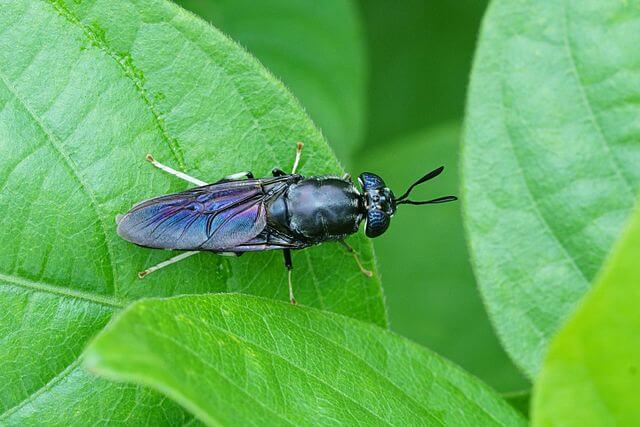
Researchers have unveiled an innovative way to transform deceased flies into biodegradable plastics, a discovery presented at the autumn meeting of the American Chemical Society (ACS).
This development is significant given the challenge of sourcing biodegradable polymers that do not compete with other essential uses.
“For 20 years, my group has been developing methods to transform natural products – such as glucose obtained from sugar cane or trees – into degradable, digestible polymers that don’t persist in the environment,” said the principal investigator, Karen Wooley, from Texas A&M University.
“But those natural products are harvested from resources that are also used for food, fuel, construction and transportation.”
The inspiration for this groundbreaking idea came from utilising waste materials generated by black soldier flies in agriculture. These flies’ larvae are a valuable source of proteins and nutritious compounds, making them popular for animal feed.
Additionally, they play a crucial role in waste decomposition. However, adult black soldier flies have a limited utility and are discarded after a short lifespan. Researchers, including Dr. Wooley’s team, have been exploring ways to derive valuable materials from these fly carcasses.
The key component discovered in these flies is chitin, a sugar-based polymer known for its role in strengthening the exoskeletons of insects and crustaceans. Chitin extraction from sources like shrimp and crab shells is already a practice. Notably, the chitin extracted from the flies appears to be purer than that obtained from crustaceans, which could alleviate concerns related to seafood allergies.
Using fly-derived materials, the research team has successfully created a hydrogel capable of absorbing 47 times its weight in water within just one minute. This innovative product holds promise for agricultural use, particularly in cropland soil. It can capture excess floodwater and slowly release moisture during droughts, contributing to more sustainable land management.
Wooley said: “Here in Texas, we’re constantly either in a flood or drought situation, so I’ve been trying to think of how we can make a superabsorbent hydrogel that could address this.”
The researchers aspire to take this concept a step further by developing bioplastics, such as polycarbonates or polyurethanes, from these fly-derived materials. These plastics, traditionally produced from petrochemicals, offer an eco-friendly alternative that doesn’t contribute to the pressing problem of plastic pollution. This ingenious approach showcases the potential to harness nature’s resources to address pressing environmental concerns.
Wooley said: “Ultimately, we’d like the insects to eat the waste plastic as their food source, and then we would harvest them again and collect their components to make new plastics. So the insects would not only be the source, but they would also then consume the discarded plastics.”
——————————————————————————
At Natural World Fund, we are passionate about stopping the decline in our wildlife.
The decline in our wildlife is shocking and frightening. Without much more support, many of the animals we know and love will continue in their decline towards extinction.
When you help to restore a patch of degraded land through rewilding to forests, meadows, or wetlands, you have a massive impact on the biodiversity at a local level. You give animals a home and food that they otherwise would not have had, and it has a positive snowball effect on the food chain.
We are convinced that this is much better for the UK than growing lots of fast-growing coniferous trees, solely to remove carbon, that don’t actually help our animals to thrive.
This is why we stand for restoring nature in the UK through responsible rewilding. For us, it is the right thing to do. Let’s do what’s right for nature!
Donate today at https://naturalworldfund.com/ and join in the solution!

